- Home
- Jane Green
The Holiday
The Holiday Read online
JANE GREEN,
JENNIFER COBURN
and
LIZ IRELAND
The Holiday
PENGUIN BOOKS
Contents
Holiday
Jane Green
The Second Wife of Reilly
Jennifer Coburn
Mistletoe and Holly
Liz Ireland
PENGUIN BOOKS
THE HOLIDAY
Praise for Jane Green:
‘Witty and wise … another winner from the queen of chick-lit’
Daily Express
‘Blissfully escapist … will take you on a rollercoaster of emotions’
Glamour
‘A densely plotted brew of love and mistakes’ The Times
‘A corker of a story, sharply and elegantly told’ Heat
‘Green can’t put a foot wrong’ Daily Mirror
‘Brilliant concept, fantastic novel’ Closer
‘Riveting’ Marie Claire
‘Funny and poignant – you’ll devour it in one sitting’ Cosmopolitan
‘The queen of feel-good fiction’ Company
‘A delicious treat confirming that Green is still queen of chick-lit’
In Style
‘A compulsive read, with women you can’t help rooting for’
New Woman
‘This eventful and emotional comedy will have you hooked’ OK!
‘A warm, lively, wise and distinctly unputdownable novel’ Hello!
‘A full-on emotional page-turner’ Good Housekeeping
‘Will send a shiver down the spines of brides everywhere’
Daily Mirror
‘Green whips up a sparkling morality tale that points the finger at bad boys and low-rent romance’ Independent
‘Jane Green is the master of fun, intelligent chick-lit … you’ll be touched and intrigued’ Woman
‘A brilliantly funny novel about something close to every woman’s heart – her stomach’ Woman’s Own
‘Cancel all engagements and read it’ Tatler
‘Happy and melancholic … this beautifully written novel from the author of Babyville explores the effects of a husband’s repeated infidelity’ She
‘Spellbound will have you hungrily turning page after page … So delicious you’ll want to wolf it down in one go’ Heat
Praise for Jennifer Coburn:
‘An over-the-top, laugh-out-loud romp’ Jennifer Crusie, The New York Times bestselling author
‘Coburn succeeds with this clever, laugh-out-loud tale of personal discovery’ Pages (San Diego, California)
‘A coming-of-age novel for women approaching, at or over thirty, Reinventing Mona is witty, surprising, and sometimes sad – in the good-cry way’ Valerie Frankel, author of The Girlfriend Curse
‘Completely captivating, Coburn’s latest will undoubtedly net the hearts of romantic comedy fans’ Booklist
‘Coburn’s storytelling skills are top-notch here. She shows a skillful ear for dialogue and all of the characters are charming’ Romantic Times
‘Offers an I Love Lucy-inspired plot’ USA Today
‘Add this one to your pile’ The San Diego Union-Tribune
‘I absolutely loved it. Funny and snappy … a total delight. I couldn’t put it down because I was staggered by the premise; I was desperate to know how it would all pan out. I really have to congratulate Jennifer on creating a character who despite having behaved atrociously, I still really liked. I so related to her internal commentary on the world. The dialogue sparkled, her friends were so colourful yet credible, and the whole experience was a total pleasure. It’s a riot from start to finish, but an intelligent, thoughtful one that says a lot about the nature of love and relationships’ Marian Keyes
‘A delightful surprise’ Suzanne Finnamore, author of Otherwise Engaged
‘The Wife of Reilly, Jennifer Coburn’s deftly funny, engaging and contemporary novel, redefines neurotic (in a great way!)’ Jill A. Davis, author of Girls’ Poker Night
Praise for Liz Ireland:
‘How I Stole Her Husband is a wonderfully written, often hilarious story of a young woman’s journey from all-around discontent to hard-won acceptance of life in all its crazy splendour. Alison Bell is the most likeable heroine I’ve met in some time, charmingly down-to-earth, sometimes painfully self-aware, and just a little bit desperate to make something of her life. How she plans to pluck herself from the depth of poverty to which she imagines she’s sunk, how she rediscovers the love of her life and how she recovers triumphantly from the havoc he wreaks makes for an utterly absorbing read. Liz Ireland takes a clever concept and raises it to an unexpected level of sophistication. Don’t miss this book!’ Holly Chamberlin, author of The Summer of Us
‘Entertaining and audacious’ Seattle Times
‘An entertaining read’ Booklist
‘Great pacing, characters and some nifty twists make this a winner’
Romantic Times
‘The three-girls-in-the-city formula gets an extreme chick-lit makeover in Three Bedrooms in Chelsea, an amusing sexy read’ Lauren Baratz-Logsted, author of The Thin Pink Line
‘The sexy singles occupying Three Bedrooms in Chelsea are heartwarming, funny and unforgettable. Liz Ireland has created an absolute delight!’ Patti Berg, author of I’m No Angel
‘Fresh and funny!’ Jennifer Crusie, The New York Times bestselling author
‘A fresh, fun, comic romantic tale’ Rendezvous
ABOUT THE AUTHORS
Jane Green has embraced Christmas, American-style, since moving to Connecticut eleven years ago. Taking her cues from Martha Stewart, each room in the house she shares with one husband, six children, two dogs, two cats and twenty-four chickens has a tree, a theme and a shocking amount of glitter. For more information, visit www.janegreen.com.
Jennifer Coburn spends the winter holidays at home with her family in San Diego, where the only way she notices the seasons changing is by checking the calendar. Holidays in Southern California are a bit different than New York City, where Coburn was born and raised. Mall Santas have tans and Mrs Claus is rumored to be a Botox devotee. Jennifer burns her menorah candles from both ends working as a public relations consultant and writer.
Liz Ireland grew up in Texas, where all her Christmases except one were green. Her favourite gift ever was the yellow Schwinn bike (with a banana seat and white wicker basket) she got when she was nine. She now celebrates the holidays in Oregon with her husband and a menagerie of pets.
Holiday
JANE GREEN
Chapter One
Sometimes in life we get stuck. Sometimes in life we think we know exactly where we’re headed, what we’re looking for, how to get there, but once we reach our destination, we have no idea where else to go.
This is how it is for Sarah Evans. Sarah, who appears to have everything in life she could possibly need: a husband who is a successful real-estate developer in Manhattan, a perfect 1930s colonial in a picture-book-perfect small town in upstate New York, and two beautiful, dark-haired children – Maggie and Walker.
Take a look at them tonight: Walker, bathed and in pajamas, his dark hair sticking up in a cowlick, runs into the living room, engrossed in his Spiderman web shooter, eager to share it with his father, who he hasn’t seen since roughly the same time last night.
‘Look, Dad!’ Walker says, hopping around his father, Eddie, who is slumped on the sofa, moving only to crane around his son so as not to miss the game, his eyes never leaving the giant flatscreen TV above the fireplace. ‘Look! Look! It shoots real spiderwebs!’ Walker climbs on the sofa as he attempts a demonstration on the ceiling, his father frowning as he moves him out the way.
‘Daddy!’ Walker pleads. ‘You’re not looking.’
Before Walker can react, Maggie walks in, the picture of innocence in her pink fluffy nightgown, her gray stuffed cat, Miaow Miaow, cradled protectively in her arms. Sidling up to her father, she turns at the last minute and snatches the web shooter out of Walker’s hands, running off into the kitchen as Walker screams.
In the kitchen, Maggie hides behind Sarah’s legs as Walker, tears already rolling down his cheeks, gives up on trying to get the shooter back, snatching Miaow Miaow from Maggie instead. The ensuing howls reverberate through the house. Eddie bolts upright, his face a contortion of rage.
‘Can’t a man get any peace and quiet around here!’ he shouts. ‘For Christ’s sake, Sarah! Tell them to keep it down. Take them upstairs or something. This is my time.’
‘Why don’t you tell them to keep it down?’ Sarah snaps, picking up a sobbing Maggie, putting the stuffed cat back in her arms as Walker tries to prise the web shooter out of her little hands. ‘Walker! Leave her alone!’
It is Walker’s turn to wail at the unfairness of being blamed just because he’s the oldest. ‘It’s my web shooter, Mommy! Maggie took it!’ His sister smirks, holding the web shooter triumphantly above her head as Walker screams in frustration.
‘Upstairs, both of you!’ Sarah shouts, putting down Maggie, who instantly starts wailing too, while Walker successfully manages to rip the web shooter away and run quickly down the hallway.
‘Goddamnit!’ Sarah hisses to Eddie, pausing to take in the fact that he hasn’t moved, lying on the sofa, pointedly ignoring the commotion.
Sarah shakes her head with disdain.
Get off your fat ass, you lazy pig, and help me.
She turns to go upstairs, calm the children down, as Eddie reaches for another beer and cracks it open.
That’s it, fat boy. You just sit there and relax while I do all the work.
She doesn’t say it out loud; would never say any of it out loud. Once these things are out there, they can never be taken back, and even though Sarah’s antipathy toward her husband is rapidly turning into hate, there are some places even she won’t go.
They have been married for eight years, but Sarah doesn’t think about their wedding very often these days. Occasionally, when she dusts the enormous black-and-white picture sitting on the mantelpiece, she will pause as she gazes at her younger, happier self, and at the man she thought she was marrying. But her mind has emptied itself of the happy memories, the laughter they once shared, and looking at that picture she may as well be looking at two strangers.
When Eddie is home, there is only ever one thought that goes through her head:
A stranger. Estranged. Strange.
Her happiest times, the times when she feels most fully herself, are invariably when Eddie is at work. Then, she can operate as a normal person. She can vacuum the family room and drink gallons of coffee as she turns Z100 up to full blast and sing along to Beyonce and Nicki Minaj.
She can dance around the kitchen as the children sit at the kitchen table, wide-eyed with delight at how silly Mommy is, giggling as they play with the chicken nuggets and – in a bid to try to get some vegetables into them – corn salad. Or peas, if she’s very lucky.
Sarah can, and does, meet with her friends for impromptu coffee and conversation. She can put her feet up in front of the Cooking Channel and scribble down delicious-sounding recipes, vowing one day to actually make them.
She can sit at the desk in the kitchen, sifting through the ever-mounting piles, making phone calls, organizing household bills, getting on with the work of being a wife, mother and household manager.
Occasionally, Sarah will still try to delegate an odd job to Eddie, each time praying he might actually do it, that somehow, if he manages to fulfill her wish, it will mean that their marriage will get back on track, that she, or they, might find happiness again, but each time Eddie forgets, and with a sigh of irritation Sarah finds herself adding another job to the next day’s ‘to-do’ list.
None of her friends realize quite how unhappy Sarah is. It isn’t as if she sits around weeping, but this sense of dissatisfaction, of unease, of knowing her life wasn’t supposed to turn out like this, follows her around twenty-four hours a day, climbs out of bed with her in the mornings, scrubs her back in the shower, and keeps her company as she goes about her day until they both climb into bed at night, exhausted, and Sarah can only look forward to numbing herself through sleep.
She did used to be happy. She knows that at some time in her life she used to be happy, but it was such a long time ago. She’s become so used to feeling the way she feels now, to this feeling of being stuck, that the memory of actually being happy has almost entirely faded away.
Today, as she dusts the mantelpiece, she pauses as she wipes the cloth over the glass covering her wedding picture. She takes the picture over to the sofa and sits down, staring beyond the glass to nine years ago, when she was twenty-seven, the features editor of Poise! – a young women’s magazine – living on Manhattan’s Upper West Side and loving every minute of it.
She’d been dating a series of unsuitable men, had just finished a heartbreaking affair with a journalist at GQ, had sworn off men completely as a consequence.
‘No,’ she kept insisting to her colleagues, ‘this time I mean it.’
Everyone knows it happens when you least expect it, when you’re adamant that this time you really don’t want it, which was exactly when Sarah met Eddie. When she thought a relationship was the very last thing in life she needed.
Their first date had been, Sarah used to say, a meeting of the minds, never mind the overwhelming physical attraction she felt for this dark, slim, confident man. From the minute she saw him she loved his brown eyes, his floppy hair, his slow smile, although she didn’t let on until their first actual date.
In those early days every time Eddie showed up at her apartment to pick her up, or they met in a bar for pre-dinner drinks after work, Sarah would feel her heart skip a beat when she saw him; a heady mixture of excitement and anticipation.
She thought she was going to marry him, but she didn’t know she was going to marry him until the first time they slept together. Sex had never been so fun, so familiar, so intimate. She knew immediately she didn’t want to be with another man ever again.
They married less than a year later – a stylish and intimate wedding at the Cosmopolitan club – before settling into life as newlyweds. Their first three years were a whirlwind of fun city living, seen through the rose-tinted eyes of a couple in love.
Sarah loved New York, loved everything about Manhattan, but as soon as she became pregnant they started driving out to the suburbs on the weekends, just for fun. Each time they drove past a white clapboard colonial with a picket fence and roses growing up around an arbor, Sarah was filled with a yearning she hadn’t expected.
Before long her fantasies were less about fitting into her favorite Ralph Lauren shift, and more about creating a proper home for her new family.
She gave up her job three months before Walker was born and attempted to settle into the house of their dreams before the big day. They had little furniture – just a huge leather sofa that Eddie would lie on to watch sports, a king-sized bed found on sale at a furniture place in North Carolina, and a bassinet, rocker and changing table for the baby’s room.
In those early days it was much like playing a giant game. Sarah used to feel that she was playing house; pretending to be a grown-up; pretending to be her mother. While Eddie was at work, she would study cookbooks then attempt sophisticated-sounding recipes, even though she had never cooked anything other than scrambled eggs before. Once they moved to the suburbs, Sarah decided to channel Mad Men, determining to do what every good suburban housewife should do: have delicious, nutritious meals prepared for Eddie when he got home.
Eddie would walk in after work and delight in how well Sarah was adapting to the suburbs, thrilled at how she was cookin
g, organizing, making a home for them. They would sit at the dining room table talking about their day, saying over and over again what a great decision this was, how happy they were to be out of the city, away from the noise and the pace and the stress.
Sarah would never have admitted it but she was never completely honest with herself, even then. She did love her new house – the eat-in kitchen! the yard! the stairs! Stairs! But she missed walking everywhere, missed the convenience of the city: running out of their apartment whenever they needed something, always being able to find it within a couple of blocks, any time, day or night.
She missed the noise of the city; the traffic, the sirens, their clanking air-conditioning unit. Until Eddie came home one day with a white-noise machine, and they have been sleeping to a background of loud crackle ever since.
Mostly, she missed her friends, the friendships she had formed when single. Once Walker was born, it quickly became apparent she was living in a different world to her single friends, that although she enjoyed living vicariously through them, she couldn’t go out drinking with them anymore, couldn’t swap stories of hot guys they’d met in the Meatpacking District on Friday night.
Once they’d caught up on one another’s lives, there wasn’t much left in common. Sarah kept hoping her friends would get married, have babies, find a common footing in order for them to re-establish their relationships with each other, but they were all, still, resolutely single.
Busy lives made it difficult for them to come out to the suburbs, and Lord knows she didn’t have time to get on a train and see them, not with a baby in tow. Filled with animosity, and a lashing of dread, she reluctantly joined a ‘mommy and me’ group. Much to her surprise, the women in the group quickly and effortlessly became her closest friends.
But by the time Maggie was born, Sarah and Eddie were definitely out of the honeymoon period. Those gourmet meals that Sarah used to cook were long gone, replaced by hot dogs, chicken fingers, and take-out pizza. Eddie now gets home far too late for Sarah to cook and then wait to eat with him, so she usually eats with the kids at around six. Eddie grabs something in the office, or at a stand in Grand Central Station on the way home.

 Saving Grace
Saving Grace Summer Secrets
Summer Secrets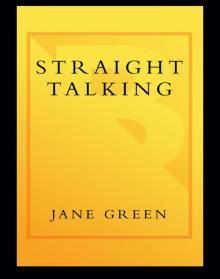 Straight Talking
Straight Talking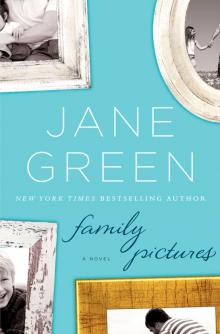 Family Pictures
Family Pictures The Holiday
The Holiday Promises to Keep
Promises to Keep Second Chance
Second Chance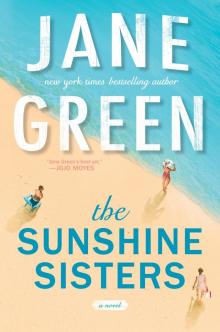 The Sunshine Sisters
The Sunshine Sisters Dune Road
Dune Road Bookends
Bookends The Beach House
The Beach House Mr. Maybe
Mr. Maybe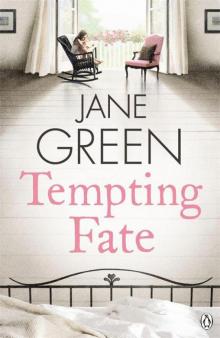 Tempting Fate
Tempting Fate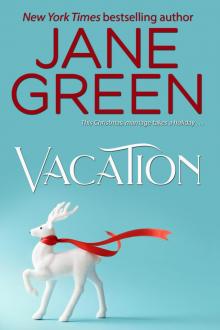 Vacation
Vacation The Other Woman
The Other Woman The Friends We Keep
The Friends We Keep To Have and to Hold
To Have and to Hold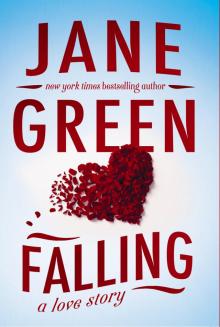 Falling
Falling Swapping Lives
Swapping Lives This Christmas
This Christmas Life Swap
Life Swap Cosmo's Sexiest Stories Ever
Cosmo's Sexiest Stories Ever